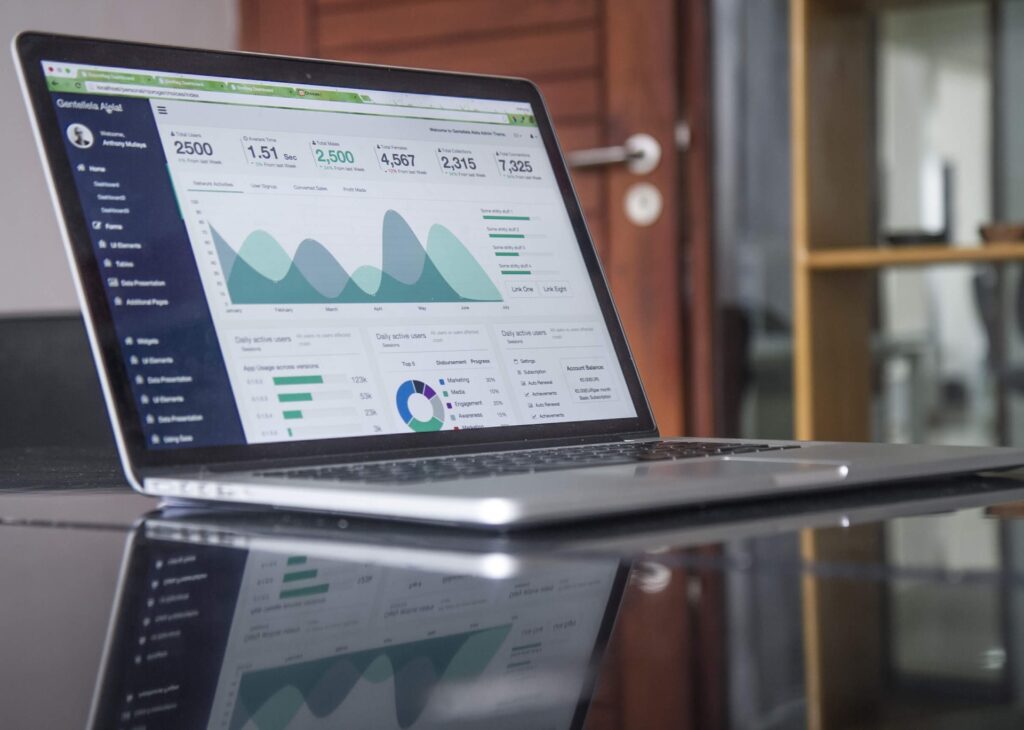QuickBooks for Landlords: The Ultimate Guide

Managing rental properties can feel overwhelming, especially when juggling finances and trying to keep accurate records. With the right property management software, such as QuickBooks for landlords, you can streamline your processes and gain better control over your business. Options like Quicken and Landlordy are also popular, but many landlords are turning to QuickBooks for its versatility and comprehensive features.
By taking advantage of QuickBooks, you’ll find that tracking rent payments, handling expenses, and generating useful reports can become more straightforward and less time-consuming. Whether you’re new to the world of rentals or experienced in property management, understanding how these tools work will help you make informed decisions and improve your financial management.
Key Takeaways
- Learn how landlord accounting software can simplify your finances.
- Discover efficient tips for tracking rent and managing property expenses.
- Get answers to frequent questions about using QuickBooks for landlords.
The Basics
QuickBooks is designed to simplify your property management tasks. Using this accounting tool, you can keep detailed records of rent payments and track repair or maintenance costs easily. Generating income and expense reports by period is quick—ideal for monitoring your rental performance.
Key functions for landlords:
- Automated tracking of income and expenses
- Streamlined rent payment logs
- Customizable financial reports
| Feature | Purpose |
|---|---|
| Rent Tracking | Monitors payments from tenants |
| Expense Logging | Records repairs and bills |
| Report Generation | Reviews profits and losses |
QuickBooks Online stands out among property management apps for landlords focused on efficiency and accuracy.
Setting Up Your Account
To create your QuickBooks account for managing rental properties or your real estate portfolio, visit the QuickBooks website and select Sign Up. You’ll need to provide your name, a valid email address, and create a strong password.
Plan options:
| Plan Type | Best For |
|---|---|
| Simple Start | Basic rental property setup |
| Essentials | Multiple property management |
| Plus | Advanced real estate portfolio |
After choosing your plan, enter your payment details and accept the terms and conditions. Once registered, you’ll be equipped to track property income and expenses, making it easier to manage your finances. QuickBooks also allows easy connection to your bank accounts, streamlining transaction categorization for landlords and property managers.
For a visual walk-through, you can view this setup guide for landlords.
Tracking Rent Payments
To manage rent collection efficiently, start by setting up each tenant as a customer profile in your accounting system. This allows you to keep tenant information—such as name, address, and contact details—organized for future reference and communications.
Once tenant profiles are set up, use the invoice feature to manage the rent collection process. Create an invoice for each tenant, specifying the rent amount, due date, and including any additional charges like late fees when necessary. This ensures clarity for both parties and helps you keep accurate records.
An example invoice structure:
| Tenant Name | Rent Due Date | Rent Amount | Late Fees | Total Due |
|---|---|---|---|---|
| John Smith | 6/1/2025 | $1,200 | $50 | $1,250 |
| Jane Doe | 6/1/2025 | $950 | $0 | $950 |
Easily monitor which tenants have made payments and identify overdue accounts by generating payment reports. This visibility helps you address outstanding rent promptly and maintain a steady cash flow. For more detailed steps, you can review guides on recording property management transactions and specifics on collecting rent payments through QuickBooks.
Managing Expenses
Effective property management requires a reliable system for tracking expenses. Using QuickBooks, you can keep detailed records for each of your rental properties, ensuring you capture all related costs and income. Start by creating a dedicated company file for your property and include essential information such as address, square footage, and unit count. This keeps your data organized and property-specific.
A key step in expense tracking is setting up a Chart of Accounts for your rentals. Customizing your chart of accounts will help you categorize every expense, from repairs and maintenance to insurance and utilities.
Steps to track expenses in QuickBooks:
- Enter bills and invoices as soon as they are received
- Record all forms of income and payments
- Assign each transaction to the correct account
Running expense reports on a regular basis can highlight patterns and reveal possible savings. Use the reporting tools in QuickBooks to compare monthly or yearly costs and monitor where your money is going. This process enables you to make informed decisions and maintain financial health for your rental properties. By tracking every detail, you ensure compliance and accuracy during tax season.
Reporting Income and Expenses
Maintaining accurate records of income and expenses is essential for sound financial management and cash flow management. To streamline your bookkeeping, use a dedicated bank account for all rental property transactions. This approach enhances your record keeping and helps separate personal and rental finances.
QuickBooks Setup Steps:
- Create a detailed chart of accounts, including categories for rent income, utilities, maintenance, repairs, insurance, and other common expense types.
- Record every rent payment and expense as they occur, ensuring each transaction is matched to the appropriate account.
Keeping your transactions updated enables you to generate customizable reports that summarize monthly or yearly income and expenses. Reports can be tailored to highlight specific aspects of your rental property’s performance, allowing you to identify cost-saving opportunities or areas requiring budget adjustments.
| Category | Income Example | Expense Example |
|---|---|---|
| Rent | Rental Payments Received | Repairs and Maintenance |
| Utilities | N/A | Water, Electricity |
| Insurance | N/A | Property Insurance |
| Administrative | Late Fees | Accounting Fees |
Automated reporting also supports better decision-making, providing visibility into cash flow management and profitability trends over time. By maintaining organized, up-to-date records of all income and expenses, you simplify tax preparation and improve oversight of your rental property business. Find more on how to structure your income and expense entries at this QuickBooks rental property expenses guide.
Tips and Tricks

Keeping your rental property finances in order is much easier when you adopt a few practical approaches and leverage user-friendly tools. QuickBooks stands out as an easy to use solution for streamlining property management accounting.
Essential Accounting Tips:
- Keep good records from the start
Enter all your properties and tenants into your accounting software as soon as possible. This lays the groundwork for accurate tracking and smoother organization later. - Create separate accounts for each property
Set up individual accounts to differentiate income and expenses per property. This clarity allows you to quickly resolve discrepancies and easily produce detailed statements. - Track all income and expenses
Monitor every transaction, from rent payments and deposits to utilities, repair bills, and management fees. This comprehensive record-keeping will save time during tax season and support better financial decisions.
What makes QuickBooks user-friendly?
- Intuitive interface easily guides you through daily bookkeeping tasks
- Clear categorization options
- Accessible reporting for both beginners and experienced users
Helpful Reports to Run Frequently:
Make use of QuickBooks’ reliable reporting capabilities. These standard reports provide insights to keep your business informed and organized:
| Report Type | What it Shows | Why it’s Useful |
|---|---|---|
| Profit & Loss | Overall income vs. expenses | Measure performance |
| Balance Sheet | Assets, liabilities, and equity overview | Financial position snapshot |
| Tenant Ledger | Payment history for each tenant | Track who’s paid, who hasn’t |
Organizational Strategies:
- Maintain up-to-date contact info and lease terms for each tenant
- Use built-in reminders for renewals, inspections, or upcoming bills
- Store digital copies of leases and important documents in one place
Frequently Asked Questions

What are the advantages of using QuickBooks for rental property management?
QuickBooks offers robust features for tracking income and expenses, which helps you maintain accurate records for each property. You can automate invoicing, accept online payments, and streamline your bookkeeping, saving significant time on manual data entry. QuickBooks is also widely recognized for its integration capabilities with tax software, making year-end reporting less stressful.
How do I categorize rental income and expenses in QuickBooks?
You can create specific income and expense accounts tailored to rental activities. Assign rental payments to a dedicated rental income category and log costs like repairs, utilities, and property management fees under separate expense categories. Treating each property as a “class” or sub-customer allows you to separate finances by unit, making your records more organized and precise.
Can QuickBooks track multiple rental properties and units?
Yes, QuickBooks allows you to manage several rental properties and units within the same account. You can use features like classes or sub-customers to track each property’s financial performance independently. This flexibility simplifies reviewing profits, losses, and cash flow for every rental unit. Guidance on managing multiple properties with QuickBooks can be found at Landlord Studio.
What are the reporting capabilities for landlords within QuickBooks?
QuickBooks provides a range of customizable reports, such as profit and loss statements, balance sheets, and cash flow reports. These reports can be filtered by property, class, or date range to give you clear financial insights. Detailed reports make it easier to prepare for tax season and evaluate which properties are performing well.
Is there a specific version of QuickBooks tailored for real estate investors?
While there isn’t a dedicated “landlord” edition, many landlords use QuickBooks Online or QuickBooks Desktop versions configured for property management. You can set up your chart of accounts and use classes or customers to fit your real estate needs. For more on landlord-specific usage, see REI Hub’s comparison of QuickBooks for landlords.
How does QuickBooks integrate with other tools commonly used by landlords?
QuickBooks supports integration with payment processors, property management platforms, and banking institutions. This allows for automated data syncs between tools you may already use for accepting rent, managing maintenance, or tracking expenses. Integration features can enhance the efficiency and accuracy of your rental business finances. For more on recording transactions and workflow, visit Intuit’s official guidance.
Looking for deeply discounted properties others don’t know about?
Don’t miss out on the next great investment opportunity! Search millions of foreclosure listings and get daily alerts for new properties in your target market.
Master the art of real estate investing with The Real Estate Property Management Guide: Premium Edition – your comprehensive roadmap to successful property management.
Whether you’re a novice investor or seasoned professional, this guide covers everything from selecting the right investment properties to tenant management and property marketing.
The author, Jeff Rohde writing as Jeffrey Roark, is a professional with over 25 years of real estate experience. This Premium Edition includes the valuable bonus book Investment Real Estate Analysis: A Case Study to help you identify hidden opportunities and evaluate properties like a professional.
Learn practical, actionable strategies for both residential and commercial properties, from single-family homes to office buildings and shopping centers.
Don’t just buy property – learn how to manage it successfully and maximize your investment potential.


